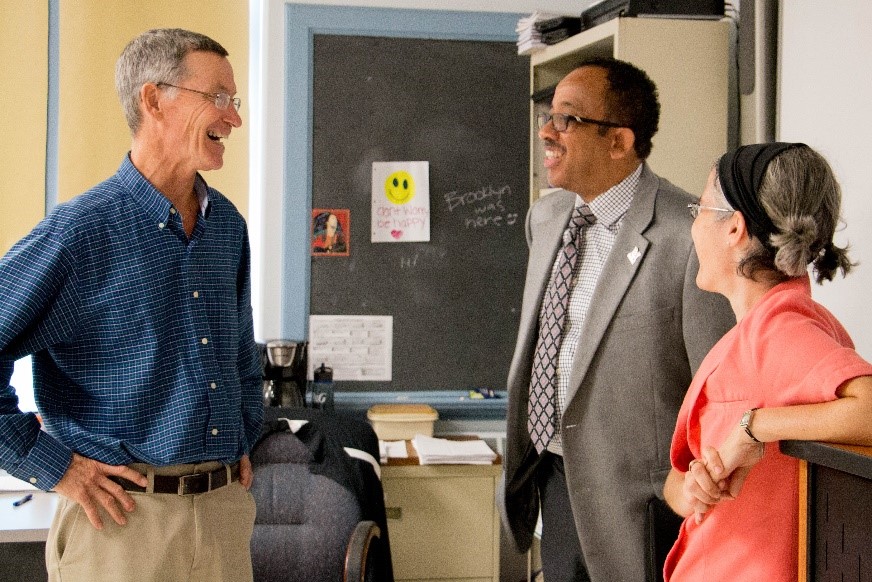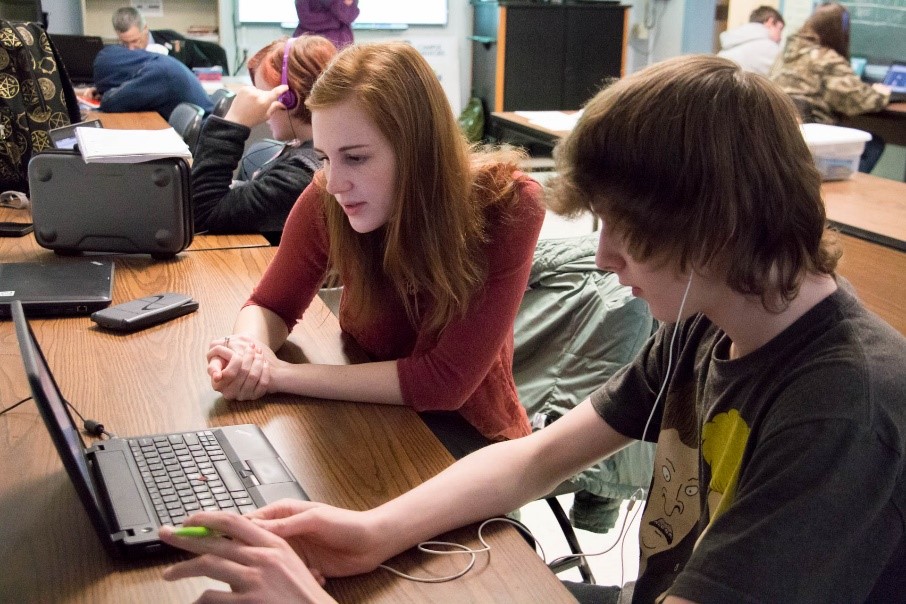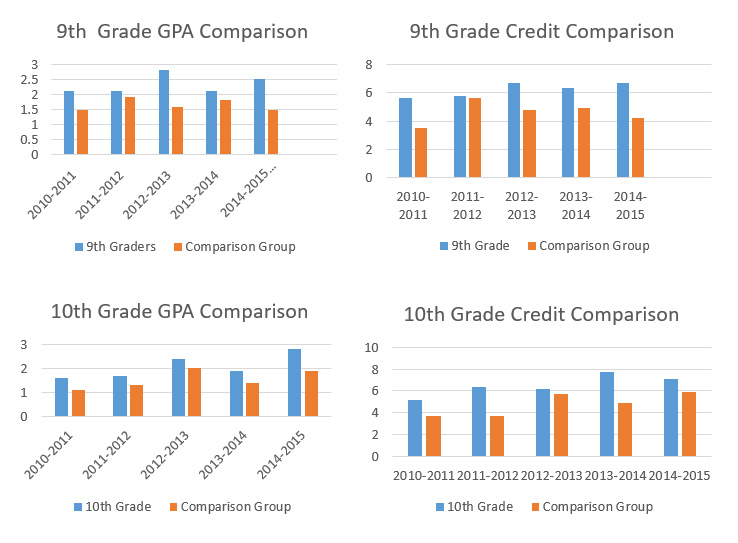‘Campus Mentors’ Making an Impact at Miami University
Ed Prep Matters is featuring “Stories of Impact” to showcase AACTE member institutions with educator preparation programs that are making a positive impact in their communities and beyond through innovative practices. We are committed to sharing members’ success stories and encourage you to do the same.
 At Ohio’s Miami University, a partnership program is providing clinical experiences to teacher candidates while supporting at-risk secondary students through highly individualized instruction and mentoring. With a successful track record that mutually benefits all participants, the program’s low price tag and high regard in the community are like icing on the cake.
At Ohio’s Miami University, a partnership program is providing clinical experiences to teacher candidates while supporting at-risk secondary students through highly individualized instruction and mentoring. With a successful track record that mutually benefits all participants, the program’s low price tag and high regard in the community are like icing on the cake.
The Campus Mentors program, directed by Professor Leah Wasburn-Moses, is based on a three-way partnership among a school, a university, and a county agency for career and technical education. Inspired by the dropout prevention programs University of Minnesota’s Check & Connect and Detroit’s Loyola High School, Wasburn-Moses cofounded Campus Mentors with colleagues at Talawanda School District and the Butler Technology and Career Center. The program hosts 50-100 academic tutors each semester along with 30 one-on-one mentors, who are supported by a one-credit-hour service-learning class.

To enter the program, high school students are nominated by teachers and guidance counselors based on their grades and at-risk status; both the teens and their parents/guardians must agree to students’ participation. The teacher candidates who work with them develop an understanding of what it means to work with students who are at-risk and how to think about teaching beyond subject matter. Some of these students are working to help support their families, others live with challenges of drug and/or alcohol use, and others have to take care of siblings. Because these conditions can change the way a student learns, teachers need to develop different strategies to serve them—and Campus Mentors provides a context to do so.
The program takes place in a single classroom donated by the university, so the primary cost is transporting the students from the high school to the college campus. “I think it is one of the least expensive clinical practice models that a teacher preparation program can implement,” said Wasburn-Moses.
The program’s low cost facilitated the support of politicians, education leaders, and other stakeholders. “Living in a small rural community, starting this program could be described as a leap of faith,” Wasburn-Moses said. “Starting relatively small made it easier to gain the support we needed.”

Like many partnerships, though, Campus Mentors required a persistent relationship-building effort to get started. “The key was working to establish trust in the beginning [between the district and the university],” said Wasburn-Moses. Once established, the program’s results spoke for themselves. “The data really improved the partnerships because it proved that the program was working to benefit everyone involved.”
Indeed, the data bear out the program’s impact on participating 9th graders in comparison to students who were nominated for the program but opted not to join, and on participating 10th graders in comparison to their own performance in 9th grade. Over the past 5 years, every group of participants completed more course credits and achieved a higher grade-point average than nonparticipants:

Beyond the data, the effects of the program have been felt by all participants. Teens report feeling more confident in their ability to finish high school and go to college. Teacher candidates say they value the hands-on experience with real struggles, frustrations, and successes with actual students.
Like any good clinical preparation program, Campus Mentors exposes aspiring teachers to realistic challenges and rewards of the field, which leads some to change their mind about their chosen profession—while exciting and inspiring others. Professor Wasburn-Moses said that after completing this experience, some teacher candidates “realize that teaching is not the right career choice for them because it is a much different and more complex reality than the perception they had before starting the program,” while others “are drawn to working specifically with at-risk students.”
An implementation webinar is available for anyone interested in starting a similar program, and an overview video (see below) explains the program from the perspectives of mentors and mentees of the program as well as university administrators. For more information, visit www.campusmentors.org.
Tags: clinical preparation, school-university partnerships






